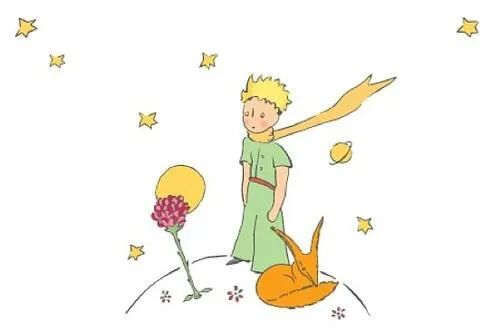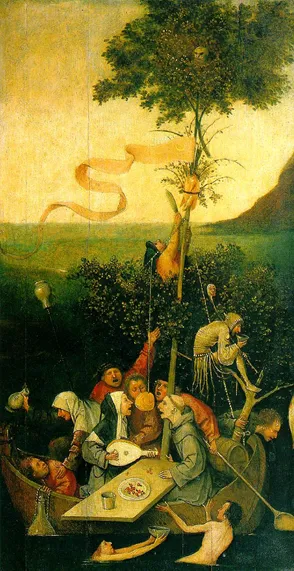
“One sees clearly only with the heart. Anything essential is invisible to the eyes." Antoine de Saint-Exupery, “The Little Prince”
Easily said, not so easily done: to love selflessly. Of course, there is no other kind of love, really, than selfless love, a love free of personal motivation, or in other words: karma-free.
I am not a Christian in the typical sense (but a spiritual researcher of esoteric Christology, theosophy, Eastern philosophy and the like), however, today I must broach the subject of the Christ as Lord of Karma. Difficult words, not helped by too many zealous and oppressive connotations. But if we probe delicately, then what on earth does that really mean?
It is precisely his cruxifiction that lends the Christ-Man Jesus this title of Lord of Karma (in Anthroposopic sources, notably), so we may as well conjure up the image of him as a lesser grounded Leonardo Da Vinci pentagram-man, with arms outstretched in generous giving, with the fulcrum of his heart keeping the Quintessence that is Man in perfect balance.
Let me break that down for you. If love is all you need, and what everybody’s looking for (until they give up or get lost in haste and vanity) it is this elevating energy which is not of the earth but generated by a life on earth. I am not so sure angels love…. All pure and good, immaculate and pristine love may not be necessary! It is a nurturing, caring, consoling and uplifting potion, very much designed to propell the True Self “upwards and onwards”. This forward motion is impossible if it is attatched to the past, which is ego, that little devil that comes into you along with the tantrums of the Terrible Twos.

Hieronymus Bosch, The Ship of Fools, c. 1490-1500;
Oil on wood, 58 x 33 cm (23 x 13"); Musee du Louvre, Paris
Ego with a little e ought to grow up into Ego-I, that Captain Self on your ship of fools which should be launching their vessle on the Sea of Love. Most of us remain unbuilt in the shipyard, or are lucky to ferry back and forth across the Sea of Azimov without one incident or other. Or going by Wallander, that bit between Ystad and Swinoujscie is also fairly bleak.
There can be no harmony without the tempering of vice and the cultivation of virtue. Harmony is a balance between extremes, a path that takes you through the dichotomies that is life, its polarities, its yin and yang, meaning to keep you steady and slip you through the pendulum that always sways around you tipping the balance this way or that. At the fulcurum, that is the sanctum sanctorium of the heart you do not put your life in the balance. You sit, you stand, you give and take but never wobble. This is the kind of selflessness we are looking for.
What you do next is up to you. Once you’ve put the circuit breaker of karma into place you are free to do as you know fit. Don’t be pushed and pulled by the old or the new that most certainly stems from an old root. This is also called, commending yourself to Christ, or God, or just the Archangel Michael; it is to let the Christ speak through you. This is what Paul (the one who became enlightened at Damascus) keeps saying about his letters; who wrote them? Not I but the Christ within me. This does not refer to an interloper or a “walk-in”, a spirit who takes over; it means to make a conscious choice to take an elevated attitude to life; to step outside your little i and be zen about who you are.
Love is only free and without selfish motif when the I is in harmony, or a still-place we might say. This wouldn’t work very well on a dating site, or how many mothers do the school runs from such a sanctuary within? But again: you are meant to be that free that you can do everything that is of life (not escape it!) only without being dragged down into its deathly hollows, or find yourself bound to its grisly black rocks by karmic ties.
You could compare a life of karma to living on your own little planet - and I could refer you to the Little Prince by Saint-Exupery for illustrations. Life is very subjective to the egoist, that is every child learning to refine, transform, transcend the ego with a little e and aspire for Love with a big L.

Drawing by a girl, age 3yrs, 4mnths. (from Michaela Strauss, “Von der Zeichensprache des kleinen Kindes”)
Good impulses like curiosity and a sense of adventure help us explore who we are. We enter the world and let the world in through the gateways of our senses. We make sense of these impressions and comment on them with this light of Consciousness that manages to take hold of the scribe that I becomes with age and wisdom. (Or in this we fail.)
Our big adversaries to building up inner peace, harmony, a calm and temperate disposition, a still centre is haste and vanity and the constant need to compete in the urge to self-assert. The biggest Opposition of all is materialsm, which has us believe in surfaces only. As if there is nothing but concrete facts from the first Bang out of no-thing to the last particle of an atom. We go through life, then, using up, putting out waste and casting off shells of who I am not. We gain nothing, leave as nothing, with nothing, having lived for nothing. Some may protest: but I leave a legacy in my progeny! In the same breath declaring all those children starved to death, all those barren failed artists, all the young canon-fodder as inferior souls to the ones who slept around. This would be to confuse man’s destiny with that of the animal.
Man has something extra which should be made to do something extra for him: this is to be co-creative. This is to own the capacity for self-consciousness. Self-realisation through a designer life is not quite the same thing.
We are learning that this consciousness is not our psychology or IQ or even our sense of humour, play and need to love (lambs frolic, dogs pine, and even rats laugh! (see this year’s Royal Institute Christmas Lecture by professor Sophie Scott. “The Language of Life”.) What is it then? Stay tuned, and I shall continue to explore this for you in my blogs.
When we say Christ was cruxified for our sins and we see before our mind’s eye a bleeding man crowned with thorns, hands outspread showing us his bleeding palms with all its lines of destiny, stabbed in the liver, his most anbolic, life-up building organ, but free of the cross, that dead tree of life, resurrected! We see what it is to overcome a way of thinking that leads to sudden and permanent death - a stone that cannot be rolled off your heart. We see how we cannot find the force to get up and dust ourselves back down again if our heart is tar pit.
We have to make a lantern of our heart; fill it with this odd substance called Mercy (cf. Simone Weil or Thomas Merton), something won from a practice of faith, or right attitude; light it with hope and tend to its little flame with daily care (right action). Keep cleaning the soot away with exercises for moral hygiene and etheric flow. This is how your heart becomes the lampshine in which the golden earth glistens, the resin of myhrr is warmed to fill in and stop our wounds and the air is sweetened with frankincense to make clouds that assume you to heaven.
The trap of hopelessness and pointlessness is evil. You don’t have to think in terms of goblins and ghouls, monsters and bat winged sucubusses but in the addictions and careless habits you waste your energy on feeding. The eternal thirst you keep trying to quench. It’s all a bit silly, isn’t it? Once you look back at it, from your death-bed (which is every day not lived for love, in joy, karma-free).
On a positive closing note then, three precepts from the Little Prince for you to try and follow:
- Look at the world through the eyes of a child. Refresh your view!
- True wisdom is found with the heart not the head. Value with gratitude not coins.
- We are all responsible for eachother (read Dostoevsky to let that one sink in!).
Keep Loving!
Your Sukhasana Sister @sukhasanasister